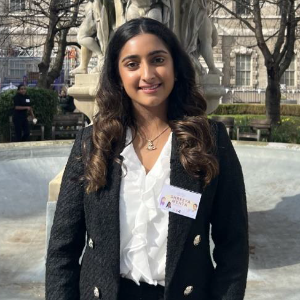Title : Exploring the relationship between erythrocyte aggregation properties and sodium homeostasis in subjects with arterial hypertension
Abstract:
Introduction: Hypertension is the primary preventable factor contributing to premature mortality and disability on a global scale – and a major risk factor for cardiovascular disease. ~ 50% of patients present with a ‘salt-sensitive’ hypertensive phenotype. Alongside this ~30% of individuals exhibit a ‘low-renin’ hypertensive phenotype. Renin is a marker of sodium retention and volume expansion. There is currently no biomarker clinically validated to be able to measure salt-induced sensitivity in humans at a cellular level. However, a novel test for erythrocyte glycocalyx sensitivity to sodium (eGCSS) has been suggested as a direct assessment of sodium-induced harm to erythrocyte surfaces, serving as a marker of the endothelium's sensitivity to salt in humans.
Aims: To investigate the relationship between eGCSS and renin and to investigate the effects of pharmacological interventions on eGCSS.
Methods: Patients were recruited from hypertension outpatient services at Guys and St. Thomas’ Hospital (GSTT). Consent forms were signed and baseline measurements were taken including blood pressure and renin levels. The eGCSS test was carried out using 50μl of venous blood with commercially available kits. In a subgroup (n=10), pharmacological interventions were started and the eGCSS test was performed at baseline and after 4 weeks of treatment.
Results: 194 individuals (mean age 43.4±12.31 years old) completed the study. 62.4% were male. 40.4% were black. The mean baseline SBP was 143.68±16.85mmHg and the mean baseline DBP was 90.17±11.89mmHg. There was a negative correlation between eGCSS and plasmin renin (β = -0.16, P<0.05). eGCSS increased slightly in patients post-diuretic treatment for 4 weeks and decreased slightly in patients post non-diuretic treatment, neither of which reached statistical significance.
Discussion: Renin levels serve as a surrogate marker for salt sensitivity, but alternative measures like the eGCSS test offer promise and potential cost-savings, correlating cellular damage with sodium retention in hypertension. With further exploration in larger sample sizes, it may be possible to validate the utility of the eGCSS test for routine clinical application.
Audience Take Away:
- They will learn about a novel test (eGCSS) suggested to be used as a direct assessment of sodium- induced harm to erythrocyte surfaces, serving as a marker of the endothelium’s sensitivity to salt in humans
- With further exploration in larger sample sizes, it may be possible to validate the utility of the eGCSS test for routine clinical application
- The audience will be able to use this knowledge to improve the treatment of hypertension
- This research could be extrapolated to non-UK populations thus enhancing patient outcomes and quality of life for those suffering from hypertension worldwide



